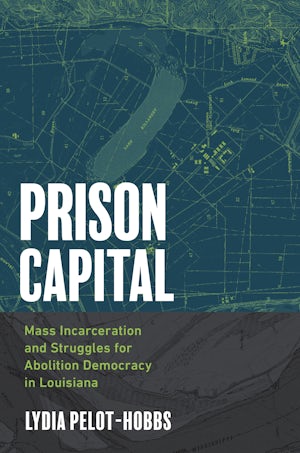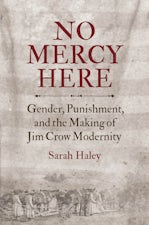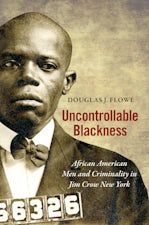Prison Capital
Mass Incarceration and Struggles for Abolition Democracy in Louisiana
By Lydia Pelot-Hobbs
392 pp., 6.125 x 9.25, 13 halftones, 3 maps, 2 graphs, 2 tables, notes, bibl., index
-
Paperback ISBN: 978-1-4696-7511-4
Published: November 2023 -
E-book EPUB ISBN: 978-1-4696-7512-1
Published: October 2023 -
Hardcover ISBN: 978-1-4696-7510-7
Published: November 2023
Justice, Power, and Politics
Buy this Book
- Paperback $29.95
- Hardcover $99.00
- E-Book $22.99
For Professors:
Free E-Exam Copies
Through extensive research, Lydia Pelot-Hobbs illuminates how policy makers enlarged Louisiana's carceral infrastructures with new prisons and jail expansions alongside the bulking up of police and prosecutorial power. At the same time, these infrastructures were the products of multiscalar crises: the swings of global oil capitalism, liberal federal court and policy interventions, the rise of neoliberal governance and law-and-order austerity, and racist and patriarchal moral panics surrounding "crime." However, these crises have also created fertile space for anticarceral social movements. From incarcerated people filing conditions of confinement lawsuits and Angola activists challenging life without parole to grassroots organizers struggling to shrink the New Orleans jail following Hurricane Katrina and LGBTQ youth of color organizing against police sexual violence, grassroots movements stretch us toward new geographies of freedom in the lineage of abolition democracy. Understanding Louisiana's carceral crisis extends our understanding of the interplay between the crises of mass criminalization and racial capitalism while highlighting the conditions of possibility for dismantling carceral power in all its forms.
About the Author
Lydia Pelot-Hobbs is assistant professor of geography and African American and Africana studies at the University of Kentucky.
For more information about Lydia Pelot-Hobbs, visit
the
Author
Page.
Reviews
"Lydia Pelot-Hobbs presents a profound and compelling analysis that shows why neoliberal regimes of racialized security must be dissolved in Louisiana and everywhere, and her wonderfully rich accounts of grassroots prison abolitionist organizing point toward how these changes can come about and how we can, and must, participate in seeing them come to fruition."—George Lipsitz, author of The Possessive Investment in Whiteness: How White People Profit from Identity Politics
"Prison Capital is an urgent, elegant, and expert account of the making of one of the carceral capitals of the world. A model of research and analysis, this book is a pathbreaking contribution to carceral history and abolitionist politics. It is, by far, one of the best books on carceral economics I have ever read."—Sarah Haley, author of No Mercy Here: Gender, Punishment, and the Making of Jim Crow Modernity
"A vital rewriting of the conventional histories told popularly and academically by historians, criminologists, and legal scholars about shifts in penal history and struggles for abolition at the level of the US nation and the South."—Michelle Brown, author of The Culture of Punishment: Prison, Society, and Spectacle
"Superb scholarship and a fascinating read. Prison Capital succeeds tremendously in explaining the buildup of the Louisiana prison population, the expansion of the state’s carceral capacity, and the underlying economic factors, state and municipal policies, and community activism behind it all."—Rebecca Hill, author of Men, Mobs, and Law: Anti-Lynching and Labor Defense in U.S. Radical History




